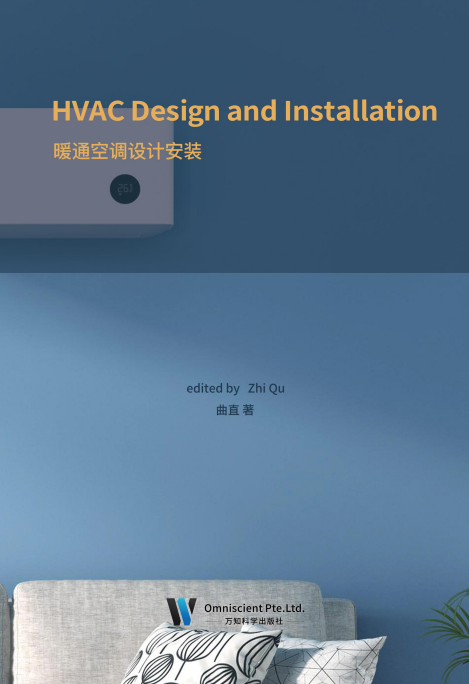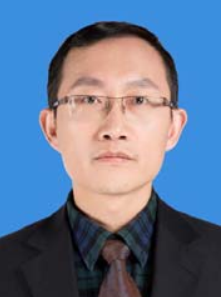
Preface
With the acceleration of the global warming process and the shortening of the global abnormal climate occurrence cycle, sustainable development has attracted the attention of the whole world in today's population expansion, the destruction of the earth's environment, the depletion of resources and other issues. People began to reflect on the increasing development of construction projects. In the one hundred years since the
Industrial Revolution, the construction industry has a great impact on the environment. The construction industry is a “big energy consumer”. 50% of the global energy consumption lies in the building, and the energy consumption of HVAC accounts for 30%~50% of the building energy consumption, and increases year by year with the improvement of people's requirements for the quality of life. In the process of sustainable design, under the influence of various financial crises and energy crises, people reduce the energy consumption of buildings by reducing the fresh air volume, reducing the operation power of air conditioner, reducing the air volume of circulating fans and other measures.
However, while reducing energy consumption, it also reduces people's comfort level to the lowest limit. Energy consumption has decreased, but new problems have arisen and air quality is deteriorating. With the development of the construction industry, people's awareness level is constantly improving. HVAC professionals gradually understand that energy conservation and environmental protection should be organically unified. Therefore, with the minimum energy consumption, creating a healthy and comfortable indoor environment and protecting the atmospheric environment is exactly the requirements of the new building for HVAC specialty.
HVAC equipment is a huge and complex system engineering. As professional HVAC technicians, we must strictly grasp each process to ensure the normal use of the building's HVAC system.
The main content of this book includes: HVAC system, HVAC cold and heat sources, HVAC energy saving technology, HVAC system and equipment control energy saving, HVAC system automatic control and noise isolation, HVAC construction and installation basic knowledge, central heating equipment construction and installation process, HVAC engineering construction and installation process, refrigeration pipeline and equipment construction and installation worker, operation and commissioning of ventilation air conditioner and refrigeration system and anti corrosion and heat preservation of HVAC system.
This book can be used as a standing reference book and training book for staff of heating and ventilation engineering cost and relevant work, and also for teachers and students of relevant majors in vocational colleges.
In the process of compiling this book, many excellent books and relevant national standards have been referred to and used for reference, and the help of relevant staff has been obtained. Due to the limited knowledge and experience of the author, although the editor tries his best, there are still some omissions in the book. Experts and readers can criticize and correct them and it will be appreciated very much.
前 言
随着全球变暖进程的加速和全球异常气候出现周期的缩短,在人口不断膨胀、地球环境被破坏、资源枯竭等问题困扰今天的人类,可持续发展已经引起全世界范围的关注。对于开发力度不断加大的建筑工程,人们也开始进行反思。自工业革命之后的短短一百年间,人类所从事的活动中,建筑业对环境产生了巨大的影响。
建筑业是个“耗能大户”,全球能耗的 50%在于建筑,而暖通空调能耗占建筑能耗的 30%~50%,并且随着人们对于生活质量要求的提高而逐年增加。在可持续设计的过程中,在各种各样金融危机、能源危机的影响下,人们以减低新风量,减小空调运行功率,降低循环风机风量等措施来降低建筑的能耗。但是,在能耗降低的同时,也把人们的舒适程度降低到了最下限。能耗下降了,但新的问题又产生了,空气品质在不断恶化。随着建筑业的发展,人们的认识水平不断提高,暖通专业人员逐渐明白,要把节能和保护环境有机地统一起来。因此,以最少的能耗,创造健康、舒适的室内环境,并保护大气环境, 这也正是新型建筑对暖通专业的要求。暖通空调设备是一个庞大而复杂的系统工程,作为专业的暖通技术人员,必须严格把握好每道工序,保证建筑物的暖通系统正常使用。
本书主要内容包括:暖通空调系统、暖通空调冷热源、通风节能技术、暖通空调系统与设备控制节能、暖通空调系统的自动控制和消声隔振、暖通空调施工安装基本知识、集中供热设备施工安装工艺、通风空调工程施工安装工艺、制冷管道和设备施工安装工、通风空调及制冷系统运转调试、暖通空调系统防腐与保温。
本书可作为从事暖通工程造价及相关工作人员的常备工具书和培训用书,也可供职业院校相关专业的师生参考使用。
本书在编写过程中参阅和借鉴了许多优秀书籍和有关国家标准,并得到了相关工作人员的帮助,在此一并 致谢。由于作者的学识和经验有限,编者虽尽心尽力,但书中仍难免存在疏漏或未尽之处,敬请有关专家和读者予以批评指正。

Zhi Qu, male, the Han nationality, born in Weifang City, Shandong Province in 1979. Hegraduated from the major of HVAC in Shandong Institute of Construction Engineering(now as Shandong Jianzhu University). Since 2008, he has been engaged in HVAC andwater supply and drainage design in Shandong Dawei International Architectural Design Co., Ltd. and now he is the chief engineer of equipment in the institute of mechanical and electrical engineering. So far, he has participated in morn than 100 design projects. It covers many kinds of project. Many projects he participated in won awards from provincial department of housing and urban rural development and China Survey and Design Association. “Han ꞏ Han Garden” project won the first prize of National Excellent Engineering Survey and Design Residential Quarter. He owned one invention patent and many utility model patents.
曲直,男,汉族, 1979 年生,山东潍坊人,毕业于山东建筑工程学院(现山东建筑大学) 暖通空调专业。 2008 年至今在山东大卫国际建筑设计有限公司从事暖通和给排水设计工作,现担任机电院设备总工程师。从业以来参与设计的项目上百个,项目涵盖多种类型, 参与的多个项目获得省住建厅和中国勘察设计协会的奖项,“大汉·汉园”项目获全国优秀工程勘察设计住宅小区一等奖,获得发明专利一项,实用新型专利多项 。